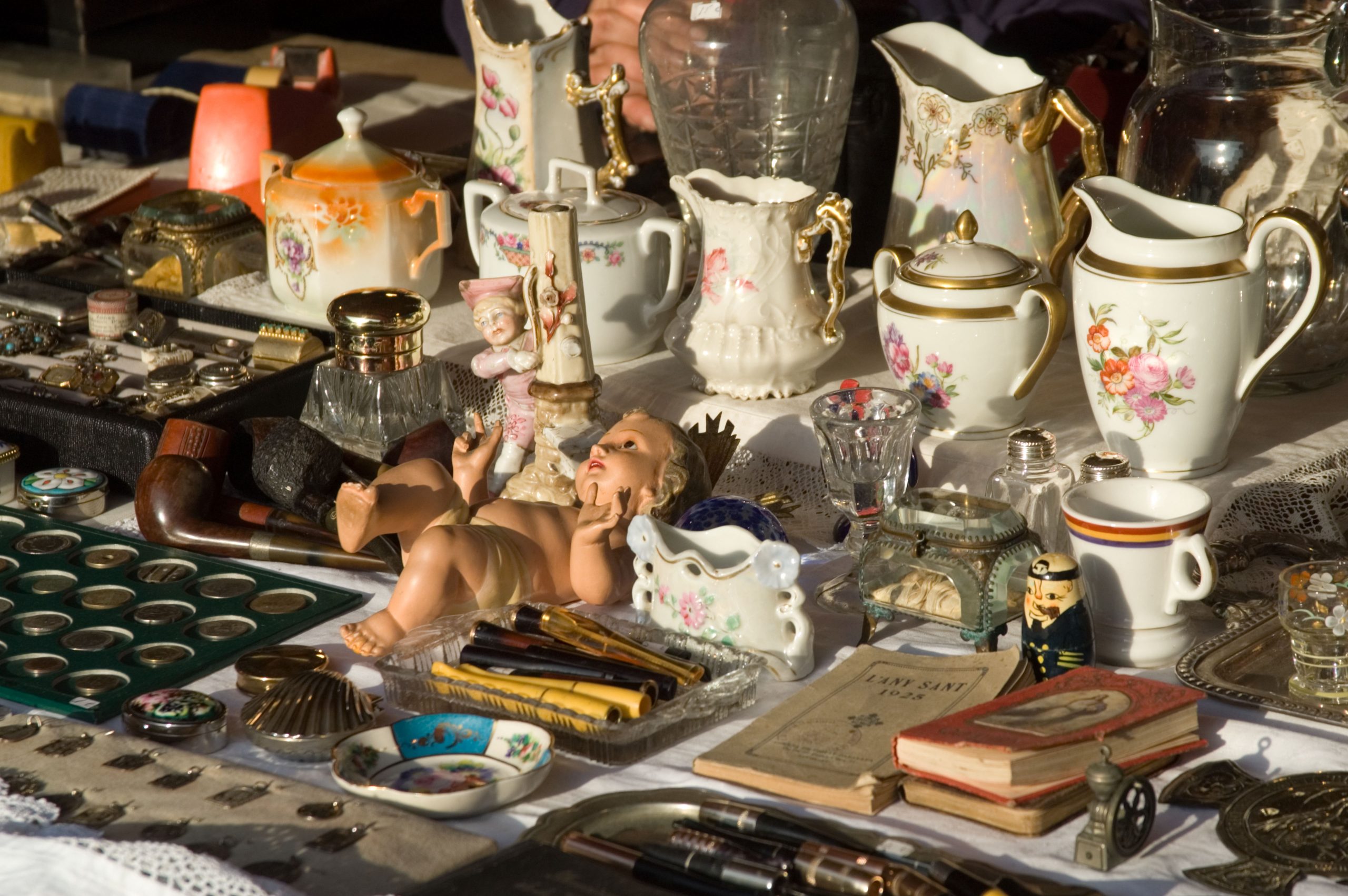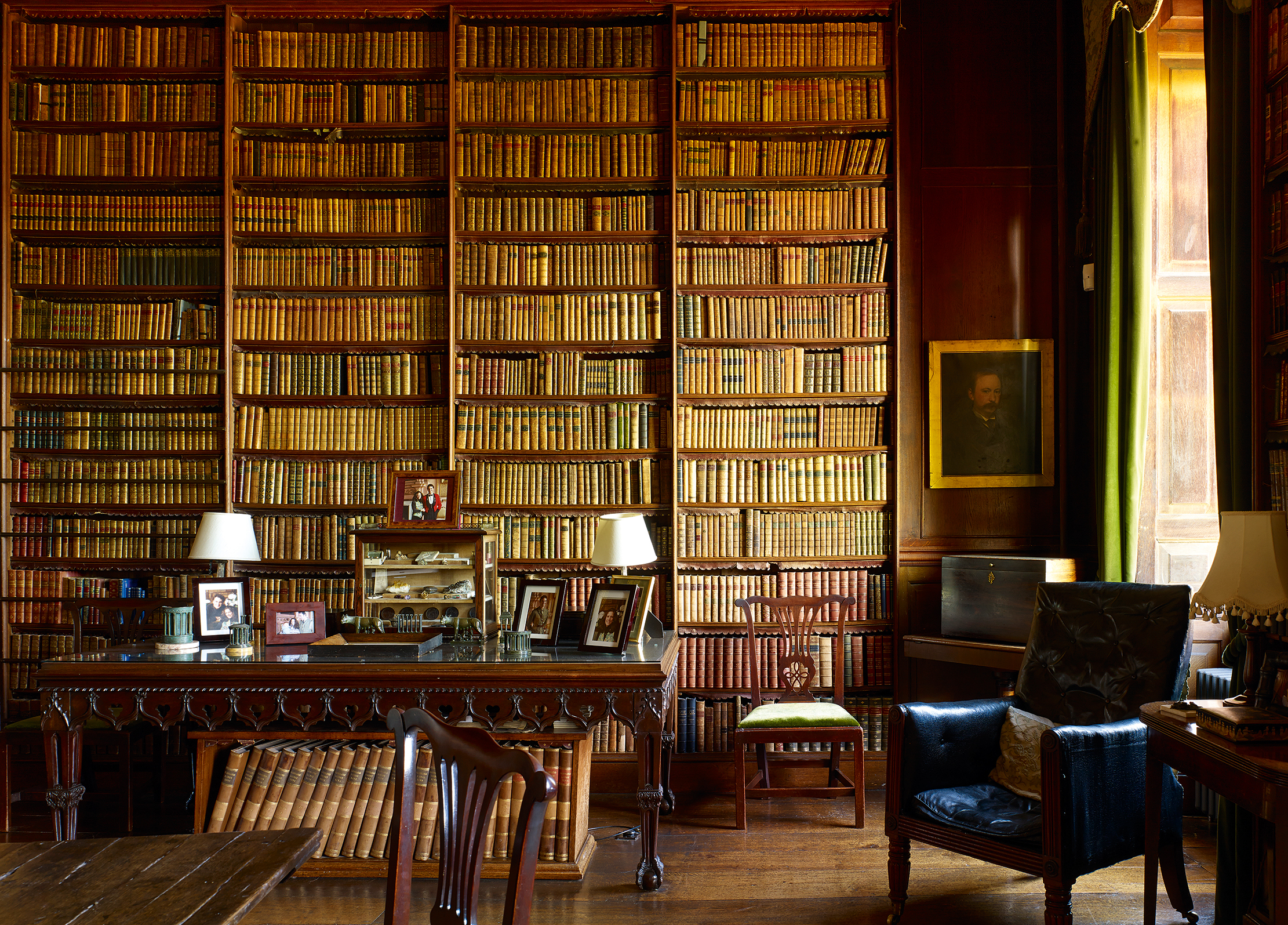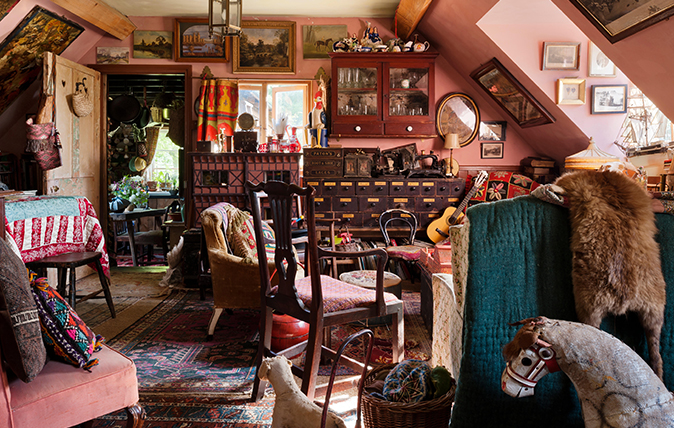'By the time I reached chapter seven I was nauseated by the sheer volume of stuff I owned'
Jonathan Self's chance encounter with a book shifts the way he sees his belongings... but how long will his urge to declutter last?


Exquisite houses, the beauty of Nature, and how to get the most from your life, straight to your inbox.
You are now subscribed
Your newsletter sign-up was successful
You can’t judge a book by its title. I have no idea how Possessed by Bruce Hood made its way onto my bedside table, but there it has been lurking, unread, for the past couple of years. I assumed it was either a passionate romance (bleurgh) or about demons (zzz) and was surprised, when I finally opened the thing, to discover that it was concerned with the human urge to acquire.
The book turned out to be a page turner.
Ownership is, of course, one of the most powerful concepts in the human mind. We are not content simply to exist in the physical universe, but want to possess as much of it as possible. Possessions represent more than economic status: we have an emotional relationship with the things we acquire. To a certain extent, they define us. We believe that happiness comes from getting what we want, but very often what we want doesn’t make us happy. When we die, we leave evidence of ourselves through what we owned, and yet the people we leave it to generally discard most of it and start over. By the time I reached chapter seven — ‘Letting Go’ — I was nauseated by the sheer volume of stuff I owned and, determined to take a strong line with at least a portion of it, rushed up to the attic with a view to instigating a major disposal.
The first box I tackled turned out to contain a number of practical things taken from my mother’s flat after she died 45 years ago: a pressure cooker, a box of carbon paper, a chicken baster and what the French would call a madeleine de Proust in the form of a rock tumbler complete with little bags of grit. For a year or two during the 1960s, my mother became obsessed with rock tumbling. She had half a dozen machines that, owing to our home’s paucity of electrical sockets, she positioned in bedrooms and hallways so that, for days on end (they could not be unplugged during each two-week cycle), one heard the relentless grinding sound of tumbling rocks. Once polished, she would parcel up the stones and store them in the bottom of cupboards and under beds. What my mother planned to do with them, what happened to them all, is a mystery.
Overcome by a wave of nostalgia, I plugged in the last remaining evidence of her grand passion and, to my delight, discovered that it worked. What I needed was some material with which to try it out. Armed with a basket, the dogs and I set off for the beach. It was bright but breezy, as Joyce would have said: ‘Wind whines and whines the shingle.’
There are valuable gemstones to be found in Ireland — amethyst, for instance, aquamarine, carnelian, jasper, tourmaline and even, apparently, diamond (in 1816 a whopper was discovered in the Colebrooke River) — but not, sadly, where we live. Still, I collected a goodish supply of small black, grey, blue, green, red, white and yellow stones, as well as an interesting piece of bog oak, some shells (whelks, cowries and conches), an example of ‘dead man’s finger’ (a species of coral), a mermaid’s purse and assorted bits of driftwood.
Back home, the stones were set a-tumbling and the rest of my treasures were arranged on a shelf in the library. I have given up my plans to declutter (let the children deal with it) and console myself with something William Morris said: ‘Have nothing in your houses that you do not know to be useful or believe to be beautiful.’
Exquisite houses, the beauty of Nature, and how to get the most from your life, straight to your inbox.

Credit: Damian Lugowski
Lucy Baring: 'It's unnerving being taught life lessons by someone who's just left school'
Adventures at the intersection of second-hand cars, Marie Kondo and William Morris.

How a collection of first editions can make your personal library just that little bit more special
Few things are more alluring than a spectacularly beautiful library within a fine country house. But should you be fortunate

How to declutter your house without losing your mind
Decluttering a house filled with inherited treasures can be a monumental challenge. Debora Robertson explains how to sort out your
After trying various jobs (farmer, hospital orderly, shop assistant, door-to-door salesman, art director, childminder and others beside) Jonathan Self became a writer. His work has appeared in a wide selection of publications including Country Life, Vanity Fair, You Magazine, The Guardian, The Daily Mail and The Daily Telegraph.
